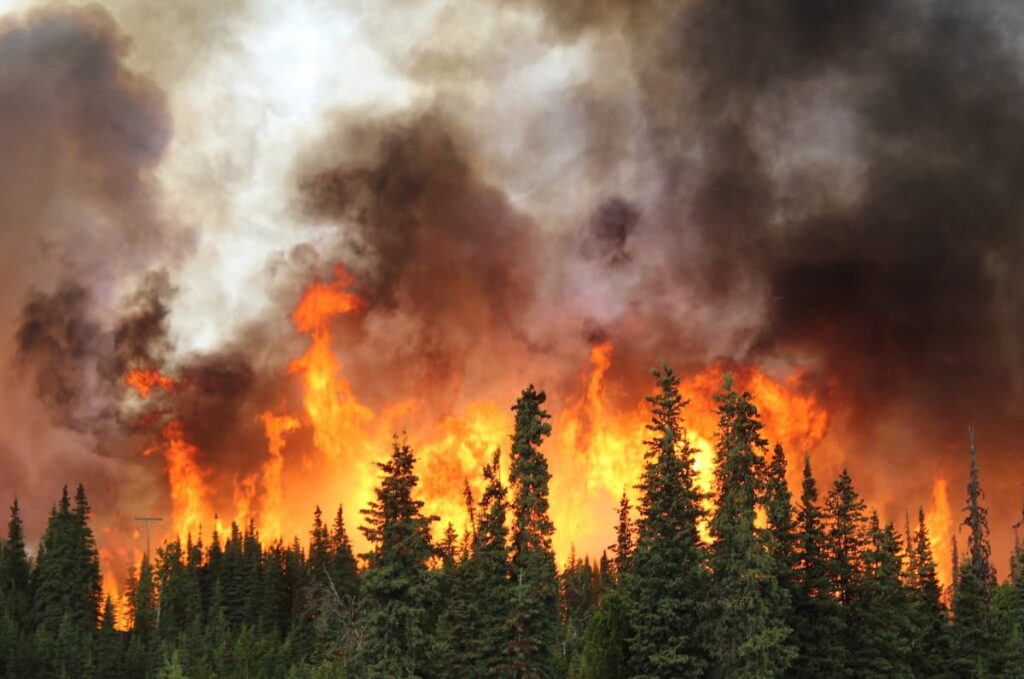Emergency in Southern France: Fire at the Gates of Marseille
A fast-moving wildfire has reached the outskirts of Marseille, causing major disruptions and triggering a regional emergency response. Originating in the nearby town of Les Pennes-Mirabeau, the fire has rapidly spread due to winds reaching up to 70 km/h, consuming over 350 hectares of forest.
The situation escalated quickly, with flames advancing toward residential areas and the sky over the city turning grey with smoke and ash. Local authorities urged residents in affected zones to stay indoors, seal doors and windows, and avoid unnecessary movement. The intense heat and shifting wind patterns complicated firefighting efforts and raised concerns about potential evacuations.
Marseille, known for its vibrant coastal life and historic architecture, has rarely seen a fire of this scale reaching so close to its urban limits. As smoke blanketed neighborhoods and air quality declined sharply, emergency services responded by mobilizing all available resources to contain the fire’s advance.
Transportation Disruptions: Airport and Trains Suspended
One of the most immediate consequences of the fire was the temporary closure of Marseille Provence Airport, the fourth-busiest in France. Air traffic was suspended, and incoming flights were diverted to nearby airports such as Nice and Nîmes. The suspension came as a precaution due to the fire’s proximity and thick smoke, which posed risks for both aircraft and passengers.
At the same time, train lines heading north and west from Marseille were also affected. The national railway operator halted services due to another nearby fire along the tracks, adding to the travel chaos already impacting the region.
The local government emphasized that roads must remain clear for emergency vehicles. Residents were explicitly told not to evacuate unless instructed, to avoid obstructing firefighting operations.
Firefighting Efforts and Regional Support
Over 160 firefighters were deployed alongside helicopters and fire engines to battle the flames. Despite the challenging conditions, they worked relentlessly to create containment zones and protect homes and infrastructure.
The regional prefecture coordinated communication through emergency channels and social media, providing updates and safety guidelines to the population. Recommendations included staying inside, avoiding outdoor activities, and monitoring official alerts.
Meanwhile, another major wildfire in southwestern France, near Narbonne, continued to burn. That fire, fanned by slightly weaker winds, had already consumed around 2,000 hectares of land. These simultaneous blazes reflect a broader pattern of increasingly severe wildfires across southern Europe, driven by climate conditions.
Rising Risks in the Mediterranean Basin
The incident in Marseille is part of a growing trend of climate-fueled wildfires affecting the Mediterranean region. In recent weeks, fires have also erupted in Spain and Greece, coinciding with record-breaking heat and dry conditions.
Experts have warned that such events are becoming more frequent and destructive due to shifting climate patterns. The combination of extreme temperatures, dry vegetation, and strong winds creates a volatile environment where fires can spread uncontrollably in a matter of hours.
In response, French authorities are investing more resources into early detection systems and expanding firefighting capabilities. However, the events in Marseille highlight the urgency of broader environmental and infrastructure planning to better withstand future climate shocks.


